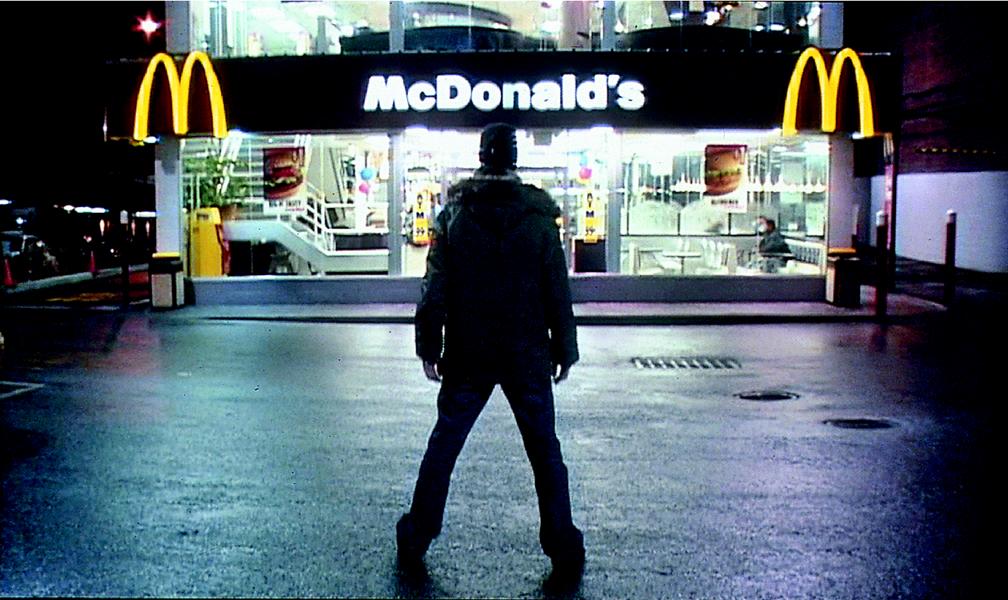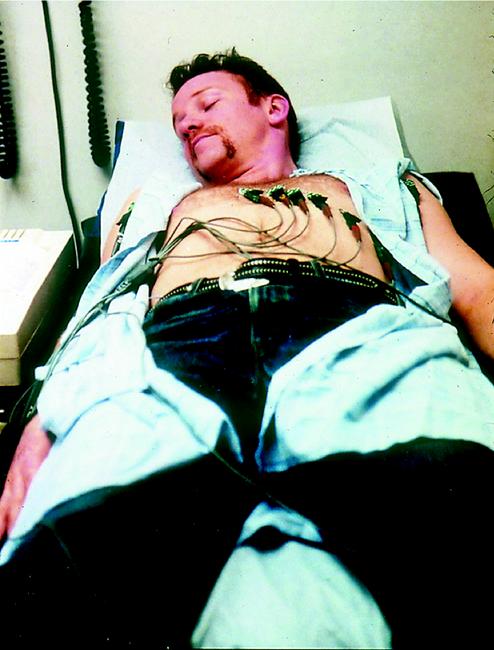Super Size Me chronicles Spurlock's month-long, food-based experiment. Inspired by a recent court case in which two obese teenagers sued the McDonald's Corporation for making them fat, Spurlock decided to offer himself up as a guinea pig, eating three meals a day at McDonald's for one month straight. From the start, Spurlock understood the absurdity of the legal case. Lazy Americans who would rather sue someone than maybe refuse another chocolate shake only solidify the filmmaker's point about personal responsibility. Still, Americans are increasing at an alarming rate, and maybe fast food has a little something to do with it.
There were rules to Spurlock's experiment. For one month, he only allowed himself to eat what was offered over the counter at McDonald's. He had to try every item on the menu at least once. And he had to super size his order if asked.
Spurlock enlisted the aid of three doctors, a nutritionist and an exercise specialist. Young, healthy and with no family history of heart disease, Spurlock launched himself into a world of Big Macs, Egg McMuffins and 32-ounce Cokes. Since 60 percent of Americans get no exercise at all, Spurlock limited his physical activity as well. None of the medical professionals evaluating Spurlock's experiment expressed much concern. But, after only a couple of weeks, Spurlock's weight increased significantly, his cholesterol shot through the roof and his liver started showing signs of damage.
It goes without saying that Super Size Me is a one-sided affair. It's more of a spunky cinematic essay than a cold slice of traditional, evenhanded journalism. Spurlock has a point to make and he makes it. Considering McDonald's spend about $2 billion a year making its point, it's difficult to begrudge Spurlock the podium.
Surprisingly, Super Size Me isn't a complete slam of McDonald's. (Though I doubt the suits behind the Golden Arches will see it that way.) Instead, Super Size Me is a wide-eyed look at the myriad causes for and impact of obesity in America. McDonald's and the rest of the fast-food industry is certainly the easiest, most pervasive target. (Did you know there are 83 McDonald's in Manhattan alone!) Still, Spurlock looks at the power of advertising that bombards children with food commercials. He heads to elementary schools that are all but subsidized by soft-drink manufacturers. He pokes into school cafeterias where French fries, snack cakes, candy bars and sodas are the sole form of nutrition for kids. Could George Bush's No Child Left Behind program, which has wiped out nearly all physical education classes in favor of test-taking preparation, have anything to do with the health problems of America's youth?
Throughout it all, Spurlock remains a chipper and upbeat host. He doesn't hate fast food. In fact, even in the midst of a virtual Big Mac coma, he still understands the tasty allure of a good fried burger. The film is, at times, painfully funny. Spurlock's arguments with his increasingly unhappy (not to mention vegan) girlfriend are highlights. If he knows how evil and dangerous the fast food industry is, why doesn't he give up meat entirely, she harangues. “Because meat tastes good,” says Spurlock.
Super Size Me starts out as a gimmick, a “really great bad idea” as Spurlock's cameraman puts it. But, over the course of the film, Spurlock's preposterous self-sacrifice really makes us think. Obviously, the human body isn't meant to eat Quarter Pounders three meals a day. (That's more than proven by film's end.) We all know that. And yet, we shovel the stuff down with alarming regularity. Why? Spurlock's burger binge is more than enough to give us pause when it comes to our own eating habits.
Like Michael Moore crossed with Johnny Knoxville, Spurlock is an old-fashioned rabble-rouser ready, willing and able to sacrifice himself for a good joke or a sharp point. Zippy, entertaining and quite hip (the theme song is “Fat-Bottomed Girls” by Queen), Super Size Me is serious food for thought.




